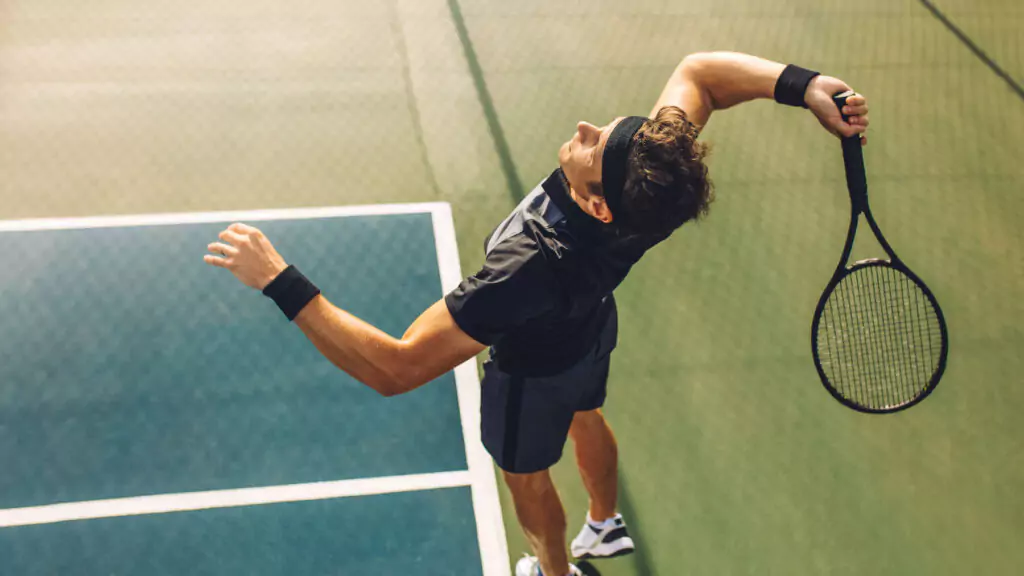Knee pain is common among tennis players of all ages and abilities. Have you noticed your knees seem stiff after playing a tennis match? Are you concerned about the swelling in your knee ever since pivoting to reach that backhand shot?
At Rose City Physical Therapy and Hand Therapy Specialists, our physical therapists are experts at treating all types of knee pain, no matter the cause. We can help you figure out the underlying issues preventing you from playing pain-free!
Tennis players often experience pain or injury due to the abrupt stopping and changing directions that are a part of the game. The knee is susceptible to pivoting and deceleration-type injuries.
Fortunately, our team of physical therapists understands the demands of tennis and, more importantly, how to prepare your body to minimize the risk of injury. At Rose City Physical Therapy and Hand Therapy Specialists, we will perform a comprehensive assessment to identify any weakness or limitation standing in your way.
Request an appointment with one of our highly trained therapists today!
What are the most common knee injuries in tennis?
Pain or swelling in your knee joint(s) or around the joint may signify that you have an injury from the pivoting, cutting and twisting demands of playing tennis. Tennis can lead to various knee pain and is often associated with acute and overuse injuries. The surface you play on can also contribute to the different types of pain or injury you may experience.
The very nature of tennis is one of complexity. It requires coordination of the entire body and involves large forces, frequent rotational movements, and abrupt direction changes. The twisting and pivoting motions at the knee can injure the cartilage, ligaments, muscles, and tendons that support and surround the knee leading to pain and dysfunction.
These extreme forces placed on the knee joint can result in the following conditions:
- Torn cartilage (i.e., meniscus)
- Torn ligaments (i.e., ACL, medial and lateral collateral ligaments)
- Tendon injury or inflammation (tendonitis/tendinosis)
- Osteoarthritis
Most injuries to the knee cartilage (meniscus) are due to the significant turning/pivoting during a change in direction on the court of when executing a forceful return shot. Although tennis players often experience an acute injury to their meniscus, it can also aggravate a previous meniscus injury.
The anterior cruciate ligament (ACL) is vulnerable to injury due to the frequent deceleration and pivoting that typically occurs in a tennis match. Women are more susceptible to ACL injuries for many possible reasons, including shape and structure of the knee joint, and muscle imbalances (i.e., quadriceps overpowering hamstrings muscles). There are even some indications that a restriction in hip range of motion can negatively affect the knee and increase the risk of ACL injury.
The most common overuse injury is patellofemoral knee pain. This is common due to repetitive jumping movements and repeated lunging, stopping with weight moving forward, and sudden changes of forwarding movement to a backpedaling movement.
Older players are more likely to have a previous injury and may have degenerative changes making them more susceptible to pain and mobility restrictions. Over time, placing repetitive and excessive stress on the knee causes the tennis player to be more vulnerable to knee pain.
Fortunately, our physical therapists understand the forces of tennis and movements on the body and the knee. Our goal is to identify all the factors contributing to your knee pain and provide you with solutions to play pain-free!
What can physical therapy do to help?
At Rose City Physical Therapy and Hand Therapy Specialists, we will conduct a comprehensive evaluation that focuses on the mechanism of injury and how long you have dealt with your condition. All of our assessments will include a thorough history to learn more about previous injuries, current restrictions and limitations, and your overall health status.
Initially, our plan will revolve around restoring any lost motion, reducing and eliminating swelling, and providing pain-relief strategies. Our team may use compression therapy and manual therapy modalities to assist the recovery process and facilitate a healing response.
Next, our therapsists will focus your rehabilitation on targeted stretching, functional movement, and manual techniques to ensure you are ready to handle more intense sport-specific strengthening exercises. Your program must include balance and coordination drills and exercises and activities that challenge your nervous system, so you can react and respond appropriately to the demands of tennis on the body and specifically the knee.
We will progress you towards a “return to sport” program that includes exercises and drills to improve motor control, plyometric demands, muscular power, and speed. Our goal is to make sure you are fully recovered and ready to resume all tennis-related activities!
Request an appointment today!
Our physical therapists are experts at treating tennis-related knee injuries. We have proven success with tennis players of all ages and abilities. Our goal is to make sure you are back on the courts playing at your highest level!
Call Rose City Physical Therapy and Hand Therapy Specialists today to schedule an appointment with one of our specialists!



